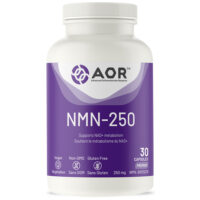Mental health problems can benefit from homeopathic remedies. This statement is clearly evident when you consider a typical case scenario involving a person who is suffering from anxiety. He or she makes an appointment to see a physician. After taking blood pressure and medical history, the patient may then be prescribed an anti-anxiety drug. At no time during the course of the exam would the physician try to determine what precipitates the anxiety.
On the other hand, a homeopathic doctor works diligently to determine what type of remedy is best suited for the above mentioned patient by taking not only a medical history, but a personal one. Thus, treating the entire human being enables the homeopath to ascertain what remedy will be the most effective.
Homeopathic doctors treat mental illnesses such as depression, anxiety, and post-traumatic stress disorder. The doctor will ask many questions in order to develop a complete picture of the patient’s mental, emotional, and physical systems. This is the essence of homeopathy.
Understanding the whole person gives the homeopathic doctor the means by which he can assess and accurately determine how to correct the imbalance within the patient. It is this imbalance which homeopaths feel are the root cause of mental illness.
In traditional medicine, prescribing a drug only treats the symptom, not the underlying cause. While the symptoms are suppressed, the illness remains. Homeopathy addresses the imbalance by treating the whole person. The remedies used stimulate the patient’s mind and body in order to bring them into balance while, at the same time, eliminating the symptoms.
This form of treatment makes sense. It allows the patient to address the problem head on. The remedies used are specific to the person, because the homeopathic doctor takes the time to find the one remedy out of those available that compliments the person and is similar to the person’s illness. The result is “like cures like.”
One such case involves a woman who suffers from severe anxiety. Traditional medications are taking a toll, and she seeks advice from a homeopath. He recommends she cease all medications, and drink up to 64 ounces of water for three days to eliminate the toxins. He then suggests that her condition be treated “systematically rather than symptomatically”, by setting up several appointments with him so that he can determine what remedy to utilize based on her medical and personal history.
This is the fundamental approach on how mental health is affected by homeopathic remedies. There are some cases where homeopathic remedies can be used in conjunction with traditional medicine, particularly if the patient has severe symptoms. But the bottom line is that the approach to mental health using homeopathic remedies is a viable alternative to the more conventional and potentially harmful medicines used today.







